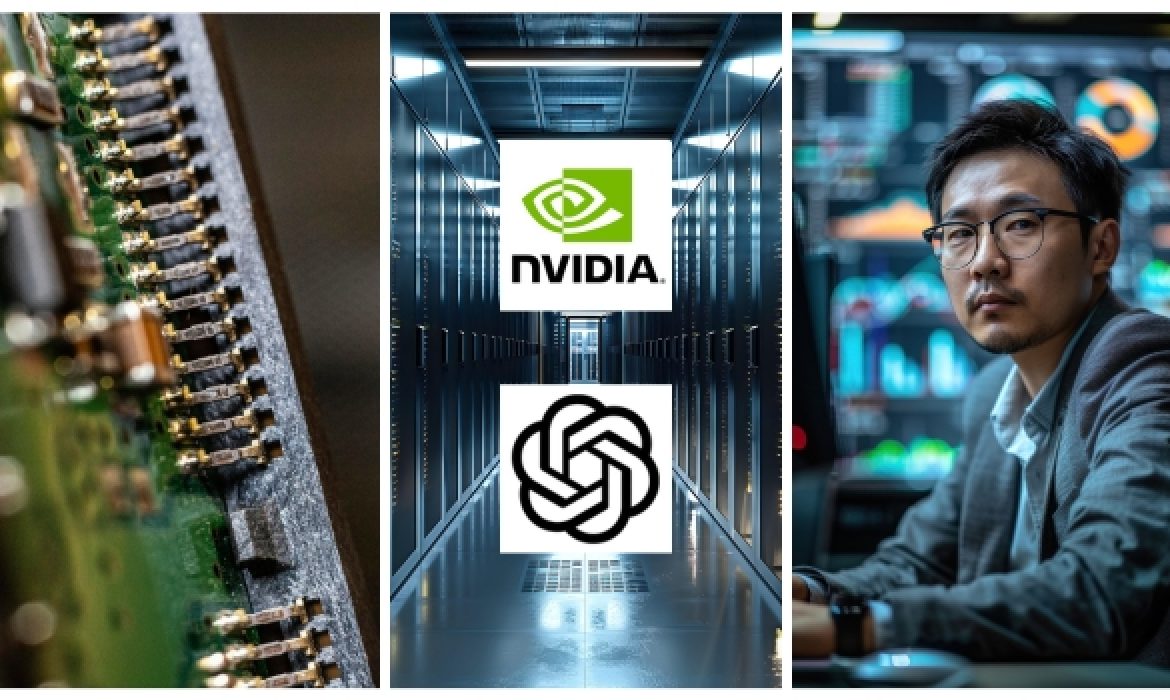
Date Issued – 23rd September 2025
Courtesy of the Research Department at Balfour Capital Group
Key Points
- India’s $18B Semiconductor Program: India launches a $18B semiconductor program to reduce chip import reliance, though experts warn structural and talent gaps could slow progress.
- Trump’s H-1B Visa Fee: Trump’s $100K H-1B visa fee triggers uncertainty among Chinese professionals and employers, raising risks for U.S. tech and finance labor pipelines.
- Nvidia-OpenAI Partnership: Nvidia pledges up to $100B in OpenAI to expand AI data centers, boosting its market cap near $4.5T and reinforcing its dominance in AI chips.
- Asian Equities Mixed: Asian equities trade mixed as China tech stocks retreat, U.S. rate caution intensifies, and Trump’s new policies pressure Indian outsourcing and pharma.
India’s $18B Semiconductor Push Faces Steep Challenges
India has unveiled an ambitious $18.2 billion plan to build a domestic semiconductor ecosystem, aiming to reduce import dependence, secure supply for strategic sectors, and capture market share as global electronics production shifts away from China.
Ten projects across six states have been approved, including two fabrication plants and multiple testing and packaging facilities, led by Tata Electronics’ $11 billion fab in Gujarat. While government incentives and global partnerships have boosted momentum, experts caution that India lacks the depth of infrastructure, supply chain, and IP frameworks required to compete at the cutting edge, making execution the critical challenge.
Trump’s $100K H-1B Fee Stirs Anxiety Among Chinese Professionals
The Trump administration’s surprise $100,000 fee on new H-1B visa petitions has rattled Chinese professionals in the U.S. and raised fresh concerns for companies heavily reliant on skilled foreign workers.
While the White House later clarified the surcharge is a one-time cost applying only to new applicants, the announcement triggered widespread disruption, with some workers canceling travel plans amid uncertainty. Immigration attorneys warn the steep fee will likely push firms to limit sponsorship to senior or specialized roles, potentially shifting jobs offshore. For tech giants like Amazon and Microsoft, which are among the largest H-1B employers, the policy represents a costly adjustment.
Nvidia Commits $100B to OpenAI in Landmark AI Infrastructure Deal
Nvidia will invest up to $100 billion in OpenAI to support the AI lab’s vast data center buildout, underscoring the scale of infrastructure needed to power next-generation models.
The project, requiring 10 gigawatts of capacity — equal to 4–5 million GPUs — mirrors Nvidia’s annual shipment volume and highlights its dominance in the AI hardware market. Nvidia shares surged nearly 4%, adding $170 billion in market value, as the deal cements its role as OpenAI’s preferred supplier. The phased investment, starting with $10 billion, reflects the deepening integration between the two firms at the center of the global AI boom.
Asia Stocks Mixed as China Tech Slips, U.S. Rate Signals Weigh
Asian equities traded cautiously on Tuesday as mixed signals on U.S. interest rates and fresh regulatory headlines from Washington curbed risk appetite.
China’s CSI 300 fell 1% and Hong Kong’s Hang Seng dropped 1% as profit-taking hit major tech names, with Baidu sliding 7% after recent highs. Indian IT stocks including Infosys and TCS extended losses following Trump’s steep H-1B visa fee, fueling concerns over the $300 billion outsourcing industry. While South Korea’s KOSPI and Australia’s ASX 200 advanced on stronger tech and commodity support, risk aversion remained evident with gold reaching record highs ahead of key U.S. inflation data.
Conclusion
Global markets remain in a delicate balance, shaped by strategic industrial bets, evolving U.S. policy, and the accelerating race in artificial intelligence.
India’s ambitious semiconductor push underscores a long-term bid for technological sovereignty, while Trump’s $100K H-1B visa fee injects fresh uncertainty into global talent flows.
Nvidia’s landmark investment in OpenAI highlights the scale of capital being deployed into AI infrastructure, reinforcing its market leadership.
Meanwhile, Asian equities reflect cautious sentiment as rate policy signals and political rhetoric weigh on momentum. For investors, resilience and adaptability remain essential as technology, trade, and policy shifts redefine market dynamics.
Investment Insights
- Semiconductors: India’s $18B chip push creates long-term opportunities in supply chain infrastructure and OSAT (outsourced assembly and testing), but near-term execution risks remain high.
- Talent & Labor: Trump’s $100K H-1B visa fee could tighten U.S. tech labor markets, raising costs for firms reliant on foreign talent while boosting incentives to offshore more roles.
- Artificial Intelligence: Nvidia’s $100B commitment to OpenAI cements its dominance in AI infrastructure, reinforcing demand visibility and ecosystem lock-in for years ahead.
- Asian Equities: Heightened policy uncertainty and sector-specific headwinds in China signal near-term volatility, favoring selective exposure to resilient tech and healthcare leaders.
Economic Calendar
| Date | Event | Why It Matters |
|---|---|---|
| September 23, 2025 | HCOB France & Germany Manufacturing/Services PMI | Early barometer of Eurozone business sentiment and potential monetary policy cues. |
| September 30, 2025 | S&P Case-Shiller U.S. Home Price Index | Insight into U.S. housing market trends and inflation pressures. |
| October 15, 2025 | U.S. Consumer Price Index (CPI) Release | Key inflation metric that heavily influences Fed rate expectations. |
| October 15, 2025 | U.S. Real Earnings Report (August) | Measures wage growth relative to inflation, essential for assessing consumer purchasing power. |
Disclaimer: This newsletter provides financial insights for informational purposes only. It does not constitute financial advice or recommendations for investment decisions.




